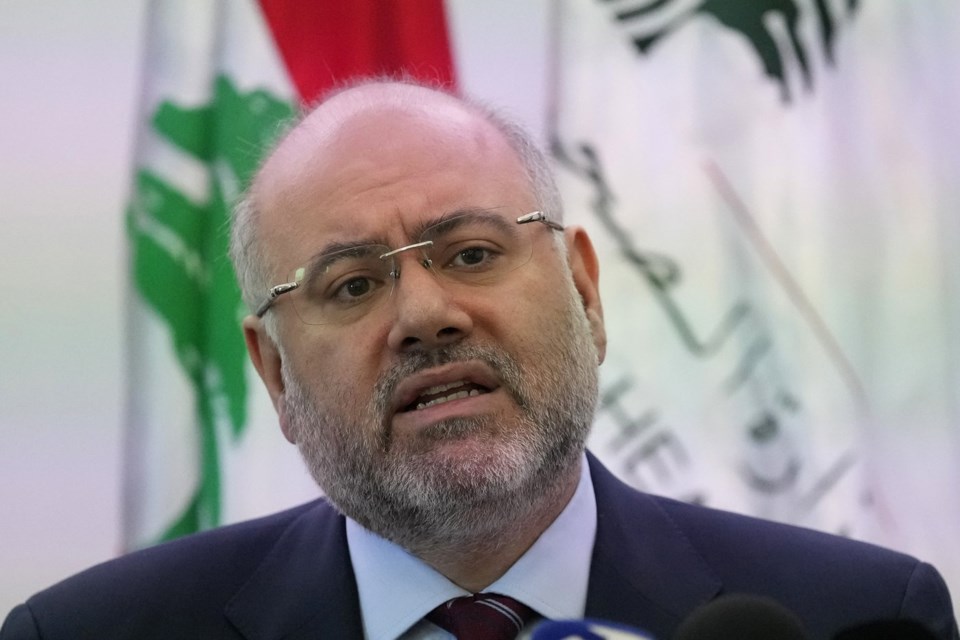BEIRUT (AP) — Lebanon’s crisis-battered health care system is now preparing for the possibility of a devastating wider conflict with Israel, the country’s health minister told The Associated Press in an interview Monday.
Israel's military and Lebanon’s powerful Hezbollah militant group have traded strikes since the current war in Gaza began, but tensions have escalated since an Israeli strike in a Beirut suburb killed a top Hezbollah commander last month. Hezbollah has vowed to retaliate.
Lebanon’s caretaker government, amid diplomatic maneuvering for de-escalation, is trying to prepare for the worst with a tattered budget, a deeply divided parliament and no president.
“The Lebanese health system had to adjust to multiple crises,” caretaker Health Minister Firas Abiad said. Health care facilities cut costs by keeping inventory at a minimum, leaving little backup for emergencies, he said. Now inventory has been built up to four months' worth of critical supplies.
“We hope that all the efforts we are doing for preparing for this emergency go to waste" and a wider war is averted, Abiad said. "The best thing that we want is for all of this to turn out to be unnecessary.”
Inside Gaza, the health system has been decimated. Abiad said Lebanese health authorities take the possibility of hospitals being targeted in a wider conflict “very seriously.”
Already, he said, almost two dozen paramedics and health care workers in southern Lebanon have been killed in Israeli strikes. They include paramedics from medical groups affiliated with Hezbollah and allied groups that have filled the gaps in areas with limited state services.
Israeli strikes have hit deeper into Lebanon in recent weeks, and sonic booms from military jets rattle Beirut. Much of the border region is in rubble.
The Mediterranean country’s health sector was once renowned as one of the best in the region. But Lebanon has faced compounding crises since 2019, including a fiscal one that followed decades of corruption and mismanagement. Other challenges include the COVID-19 pandemic, the 2020 Beirut Port explosion that damaged or destroyed key healthcare infrastructure and dwindling international aid to help Lebanon host more than 1 million Syrian refugees.
Lebanese hospitals in 2021 were at breaking point, barely able to keep the lights on and short on medicine.
Abiad said the health sector has shown resilience before, and he hopes it will again.
“During the (port) blast, the system was able to absorb an excess of 6,000 casualties in a matter of 12 hours,” he said. “There is, I would say, a determination within our health care system to provide the needed care to all the people who require it."
But resilience might not be enough for the troubled country and its 6 million people. The financial crisis has left government agencies beholden to humanitarian organizations for cash injections and supplies.
Last week, the health ministry received 32 tons of emergency medical aid from the World Health Organization. But U.N. agencies and other humanitarian groups have had to reallocate funds from existing work to provide aid to about 100,000 people who have fled southern Lebanon since the current war in Gaza began.
Abiad said some issues are out of the ministry’s control, including securing fuel for electricity and petrol for ambulances, as well as supporting the almost 800,000 U.N.-registered Syrian refugees in the country.
Health care resources are not sufficient for refugees in particular, Abiad said: “The international community really has to pull its weight and chip in with this particular issue.”
Kareem Chehayeb, The Associated Press



